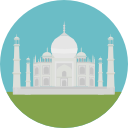Significant Technologies or Ideas Diffused Through the Islamic World
Contents
The Islamic World Was An Important Center of Science and Learning
Great empires throughout history have sponsored learning and scholarship. Without intellectual advances, powerful civilizations would not stay powerful for long as more technologically advanced societies would threaten their economic success and security. Early Islamic leaders understood this and supported education and scholarship in their territories. The 8th to the 14th century is known as the Islamic golden age of arts and sciences.
Learning and scholarship in parts of the Islamic world: The core of the Islamic world existed between eastern and western civilizations. Many of the world’s great trade routes also passed through Islamic lands. As a result, the Islamic world became a transit hub of ideas and knowledge in Islamic learning centers in Africa and the Middle East. Thus, Islamic scholars had access to a wide variety of information they used to make their own significant mathematical, scientific, and technological advances.
Below are some of the most historically important technological innovations or ideas that arose in the Islamic world or diffused and spread through the Islamic world.

Hindu-Arabic numerals
The numbers 0-9 were acquired from Hindu India. The Hindu version had the numbers backward 9-0. Islamic scholars reversed their position.

Magnetic Compass
The magnetic compass was originally invented in the Han dynasty China (206 BCE- 220 CE). It was brought to the west through Muslim traders.

Paper
Invented in China in the 1st or 2nd century, Muslims learned the art of papermaking in the 8th century and set up paper mills across Islamic heartlands.

Gunpowder
Gunpowder originated in 10th century China before diffusing west through Silk Road trade routes and invading armies. Gunpowder appears in Islamic records by the 13th century.

Plants and Crops
Plants and crops, such as cotton, bananas, spinach, and sugarcane were introduced to Europe through Muslim traders.

Astrolabe
Originally invented by the Greeks, the astrolabe was further developed in the Islamic world where it was used to find the direction of Mecca to which all Muslims pray.

Ancient Greek philosophy
Ancient Greek knowledge from philosophers like Socrates, Plato, and Aristotle. Translated from texts acquired by the Byzantine Empire.

Pain relief and anti-septic cleansing
Discovered the use of opium for pain relief and alcohol as a disinfecting agent.

Knowledge about infectious disease
Scholar Ibn Sina developed concepts of infectious disease and its spread through the air.

Surgical knowledge and instruments
Surgeon Al-Zahrawi developed many commonly used medical instruments, such as the scalpel and forceps.

Algebra, geometry, and trigonometry
Mathematicians advanced pre-existing knowledge of mathematics from translated texts and further refined mathematical theories.
Video: The Rise and Fall of Islam's Golden Age

Advances in mathematics and astronomy
Islamic scholars were scientific and mathematical innovators.
- Geometry: Islam’s disapproval of using human and animal imagery in many styles of art and architecture resulted in Islamic artists decorating Islamic buildings with elaborate geometric patterns. Muslim artists discovered various types of symmetry that could depict shapes on two-dimensional surfaces. Over time, this knowledge helped further the development of geometry.
- 0-9 numbering system: Persian mathematician Muhammad Al-Khwarizmi, an early director of the House of Wisdom in Baghdad, strongly advocated adopting the Hindu numerical system of 1-9 and 0, which had originated in India. After the Islamic world embraced this system, it spread to Europe. Once adopted, this simple 0-9 numbering system made complex calculations easier and helped further develop mathematical and scientific innovation. It also allowed for easier financial record keeping of large amounts of money, which helped facilitate further trade and economic growth.
- Algebra: Another Muslim scholar, Nasir al-Din al-Tulsi, developed algebra as a mathematical discipline. Algebra allowed for more complex mathematical calculations, which further helped develop other mathematical, scientific, and technological achievements.
- The movement of stars and planets: The mathematician Al-Tulsi above was also an astronomer. He mapped the motion of the stars and planets. He theorized that the Milky Way galaxy was a large number of clustered stars and strongly supported the idea that the earth was not at rest but moving.
Video: The Man Who invented Algorithms

Advances in Literature
The Islamic world developed a rich tradition of language and literature. During the Abbasid period, the Islamic world reached a high point of written and poetic expression.
- The Quran inspired poetic expression: Islam considered poetry the height of cultural expression. Islamic rulers and wealthy Islamic traders financially supported many Islamic poets. Common themes in Islamic poetry included love, devotion, and god. One of the most accomplished Islamic poets of the era was a woman named A’ishah al-Ba’uniyyah, who published love poetry praising the Prophet Muhammad. Her entire body of work remained unmatched in size by any woman author until the 20th century.
- An increase in non-religious literature: One of the most famous books in history, Arabian Nights, first appeared in the 9th century. This collection of short stories has no known author and focuses on adventure, magic, and the Islamic Middle East’s wealth. Aladdin is the most familiar tale to western audiences from Arabian Nights.
- The expansion of papermaking: The process of making paper arrived from China and helped Islamic literature flourish. Mass production of paper took place in the Abbasid capital of Baghdad and several other major Abbasid cities. Sufficient paper stocks allowed for the increased production of manuscripts. Mass production decreased prices and made books more available to scholars and the educated.
! Ap exam alert !
Know how the Islamic world impacted Europe. This topic will show up several times in the first four units of the course.

Advances in Medicine
The Islamic world also produced some of the world’s most advanced medical knowledge and practices.
- The development of medical facilities and practices: Islamic scholars developed the use of hospitals to treat severely sick patients and training programs for doctors and medical professionals. They discovered antiseptics like alcohol to clean and sterilize wounds and opium for pain relief developed in the Islamic world.
- Understanding of biological function: Islamic medical practitioners also understood complex anatomical workings such as blood circulation and how diseases like smallpox, leprosy, and STDs spread.
- Development of medical instruments: Modern medical professionals still use many medical devices developed in the Islamic world, including forceps, scalpels, and surgical needles.
Islamic Knowledge and Technology Had Global Impacts
The Islamic world passed its knowledge and technologies to new civilizations through cross-cultural interactions. Much of that transfer happened in Islamic libraries and learning centers in urban areas along trade networks: This knowledge transfer led to the transformation of many non-Islamic societies, especially in underdeveloped Europe.

The House of Wisdom
The House of Wisdom in Baghdad in the Abbasid Empire was one of the Islamic Golden Age’s largest and most famous learning centers. Scholars across Eurasia and North Africa came to the house of Wisdom to study books and manuscripts in its libraries, learn from other scholars, share knowledge, and debate ideas. Many languages were spoken and translated at the House of Wisdom. As visiting scholars returned to their homelands, they disseminated academic expertise and practices learned at the House of Wisdom. The Islamic world’s incredible advances in mathematics, astronomy, medicine, and literature would not have been possible without the House of Wisdom.
Video: The House of Wisdom
Clickable Image: Centers of Learning in the Islamic World

The Islamic World’s Role in the Preservation of Ancient Greek and European knowledge
Western Roman Empire, these philosophers’ ideas vanished from Western Europe. However, the ideas were not lost to history because they were stored and studied in the libraries of the Islamic world (also the Christian Byzantine Empire).
- Islamic translation of these ancient texts helped preserve the ideas and workings of Athenian democracy and the Socratic method (early scientific method).
- Greek classics would be rediscovered by Europeans during the European Renaissance and Enlightenment periods between the 15th and 19th centuries and provide the foundation for modern democratic systems and scientific outlooks.

Cultural Transfer Between Islam and Europe
Islamic Spain provided a close point of contact between the Christian and Islamic worlds from which the knowledge and innovation from the Islamic world could spread into Europe.
Significant knowledge transfers into Europe include:
- Greek philosophical classics to Western Europe
- medical manuals, medical treatments, and medical tools
- more advanced ideas and theories on algebra, geometry, trigonometry, and astronomy
- new technologies such as the spinning wheel and the windmill.
! Ap exam alert !
Know how the Islamic world impacted Europe. This topic will show up several times in the first four units of the course.
The transfer of Islamic knowledge helped revitalize Europe
European scholars used knowledge and technology from contacts in the Islamic world to forge a new path for Europe in the last few centuries of the Middle Ages.
Europe developed a scholar class of its own: As Europeans brought back knowledge from time spent in Islamic libraries in places close to Western Europe like Spain, increasing numbers of Europeans were inspired to study math, astronomy, and medical sciences.
A university system developed: The growth in a class of European scholars led to the development of university systems across Europe as early as the 12th and 13th centuries as scholars sought dedicated places to learn and study. The University of Bologna in Italy dates to 1088, while Oxford University in England dates to 1096.
The seeds of revolution: The introduction of Islamic knowledge and technology and the growth of a European scholar class resulted in future European political, economic, and social revolutions—the Renaissance and Scientific Revolution. Together these events transformed several European states into global powers that conquered much of the world’s landmass and people between the 15th and 20th centuries.
Unit 1: The Global Tapestry
Unit 2: Networks of Exchange
Unit 3: Land-Based Empires
Unit 4: Trans-Oceanic Connections
Unit 5: Revolutions
Unit 6: Consequences of Industrialization
Unit 7: Global Conflict
Unit 8: Cold War and Decolonization
Unit 9: Globalization
Template is not defined.

































